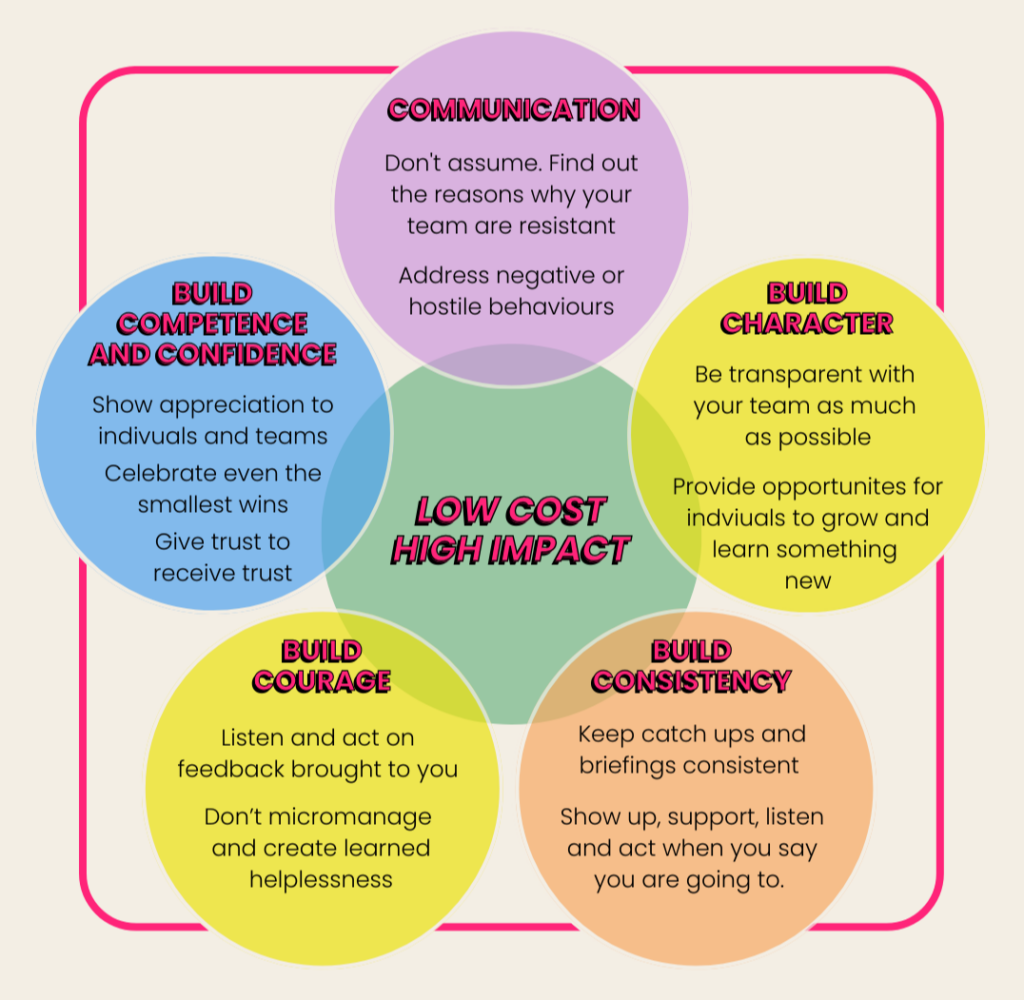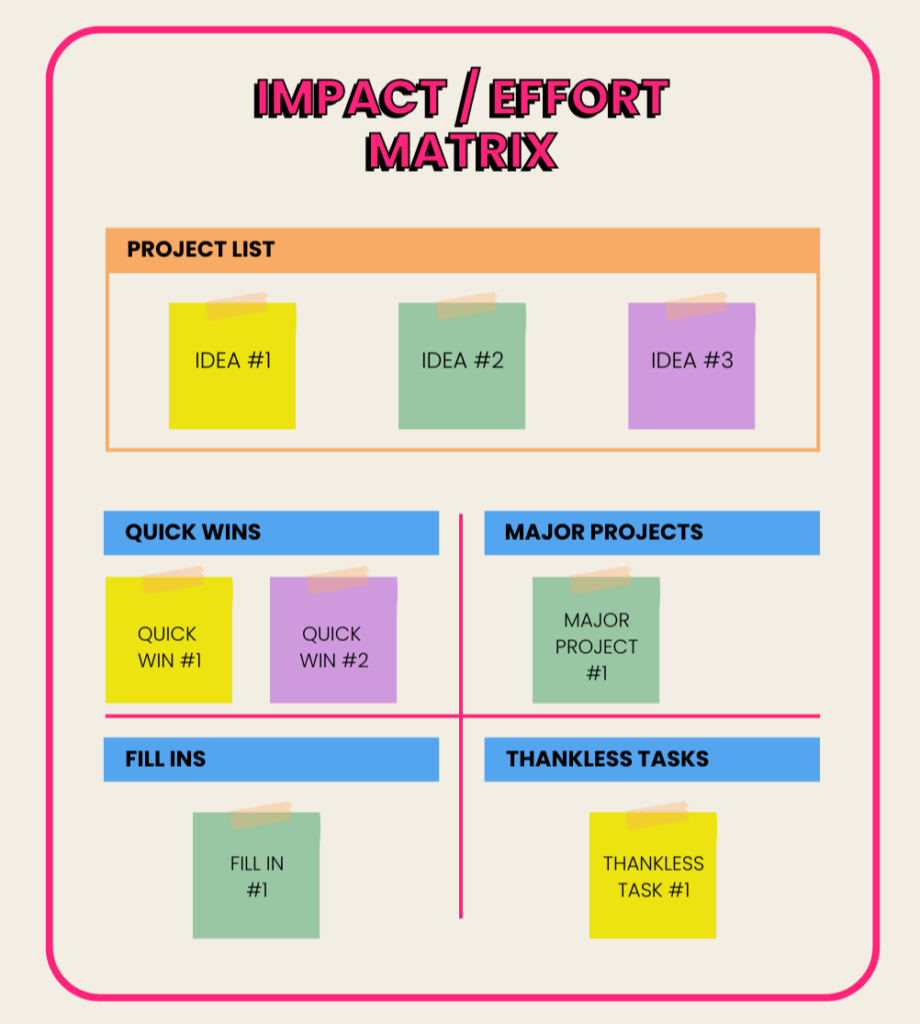CULTURE CLUB: ENTHUSING YOUR TEAM THROUGH THE TOUGH TIMES
CULTURE CLUB is our regular column in which YOUR workplace culture questions are answered by experts Merly and Michelle. Well & Being co-founder Merly Kammerling is an ex-chef who has been offering psychological support and training since 2018. Well & Being’s leadership specialist is Michelle Moreno who has over 25 years of experience in leadership and operations. Between them, they have worked with businesses such as Soho House, Leon, Trinity, Accor Group, Brunswick House, Ministry of Sound, William Grant and Electric Mayonnaise.
In this instalment, Michelle takes the reins to explore building culture from scratch in a small team.
THE QUESTION
I want to ask something that I think a lot of us business owners and managers are feeling right now. Last year was so tough, with cost of living and the impact of the Tronc Law forcing us to make lots of adaptations and adjustments. Now, looking forward to the upcoming budget changes, I know we’re going to need to be even smarter, leaner, and more united than ever to make it a success.
But I’m worried about bringing the team along with me on this journey. They’re already really feeling the strain, and I can sense some resistance when I talk about what’s ahead. My question is – how do I get everyone on board, rally their energy when it feels pretty strained, and set us up to tackle this together, even with these concerns hanging over us?
Merly’s answer
If we dig deeper, this is all about trust and motivation, and the root of trust is a lack of security and survival. Obviously, the current economic climate, new budgets and cost of living are outside of your control, but what is within your control are the strategies you implement to build trust and morale within your team. When employees trust the company and the leaders, they’re more likely to stay motivated and keep the faith.
Job security and job stability are a little different. Having job security is about reassurance that they have a job to go to and a wage, that they deserve, in exchange for their labour. Job stability is about consistency in the role itself and the cost to their well-being, career path, and how they feel mentally and emotionally about themselves and their experience at work. Simply put, when employees feel insecure or unstable, or both, they want to trust that their loyalty to you is worth it.
The old school of thought was that a certain level of job insecurity has a motivating effect. However, research shows that this has a detrimental impact on creativity, innovation, and collaboration as well as creating disconnection rather than teamwork. People are thrown into survival mode, rather than thrive mode. We cannot do our best work in survival mode. You may not be able to promise total job stability or security, but you can certainly instigate some low-cost, high-impact ways to rebuild connection and trust. Here are some ways that you can bring the energy back:

Managers and leaders play an incredibly important part in building trust in the workplace. Investment in learning and development is commonly the first things to go out the window when the financial climate gets tough; however, now, more than ever, is the time to give yourself and your managers the resources and skills to build confidence and know-how to deal with how to transform dwindling morale and resistance from your teams. When it comes to growing and strengthening your team’s inner and outer resources, the return on investment can be priceless.
Michelle’s answer
We hear you and you are not alone. Especially since the budget, this an uncomfortable topic for many. Business owners, teams and people are scared and unsure what to do next. It feels like “survival mode” will continue for the forseeable and you’re exhausted. But there is hope! And we are here to help you with strategies that can enable you and your teams to build capability, resilience and focus on opportunities.
Let’s start with the classic conversation in truth. Acknowledge, understand and appreciate that for you personally, as a team and as a business the uncertainty and challenge is unnerving to say the least.
In the podcast episode “A company is not a family.” Rethinking by Adam Grant, Airbnb CEO Brian Chesky highlights the vital role of transparency and integrity and how this can help leaders earn trust, enabling teams to accept hard decisions, even amidst disagreement. Reflecting on his crisis management approach, Chesky observes: “I tried to explain exactly why we were doing this. Logic is vital during challenging times.”
A framework to get your team on board
Here’s a practical workshop framework to align your team and move forward:
- Set the Tone: The Stockdale Paradox (above) – concept by Jim Collins
- Brainstorm What’s Working Well.
- Brainstorm What’s Holding you Back.
- Group the challenges. Don’t discuss them, just group things in the same or in a similar vein.
- Reframe and Future Focus these Challenges with “How Might We”
- Test Ideas with the Impact vs. Effort Matrix (below)
- Prioritise and Plan – quick wins and major projects

Conclusion
These frameworks are than more than mere tools—it’s a way to create shared ownership, inspire confidence, and show that even in tough times, progress is possible. Together, you’ll find not just resilience but also a renewed sense of purpose, culture and possibility for a brighter future.
As you step into April’s upheavals, leading your team through challenges isn’t about having all the answers upfront. It’s about showing up with honesty, involving them in the process, and focusing on achievable steps.
Michelle has collaborated to launch The Growth Collective, a new 8-week leadership coaching program for operations teams looking to develop clarity and confidence, and transform challenges into opportunities for growth. Contact michelle@qableadership.com for more information.
